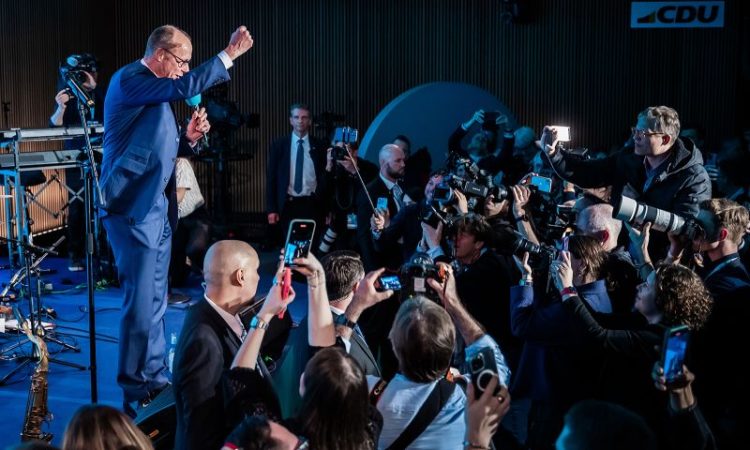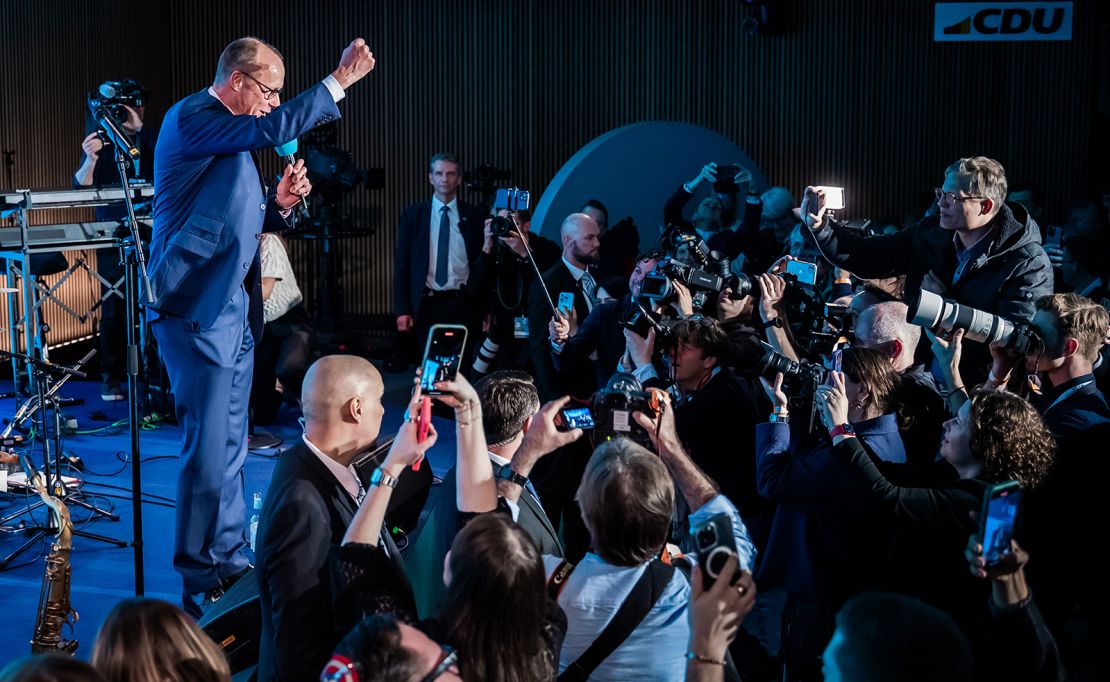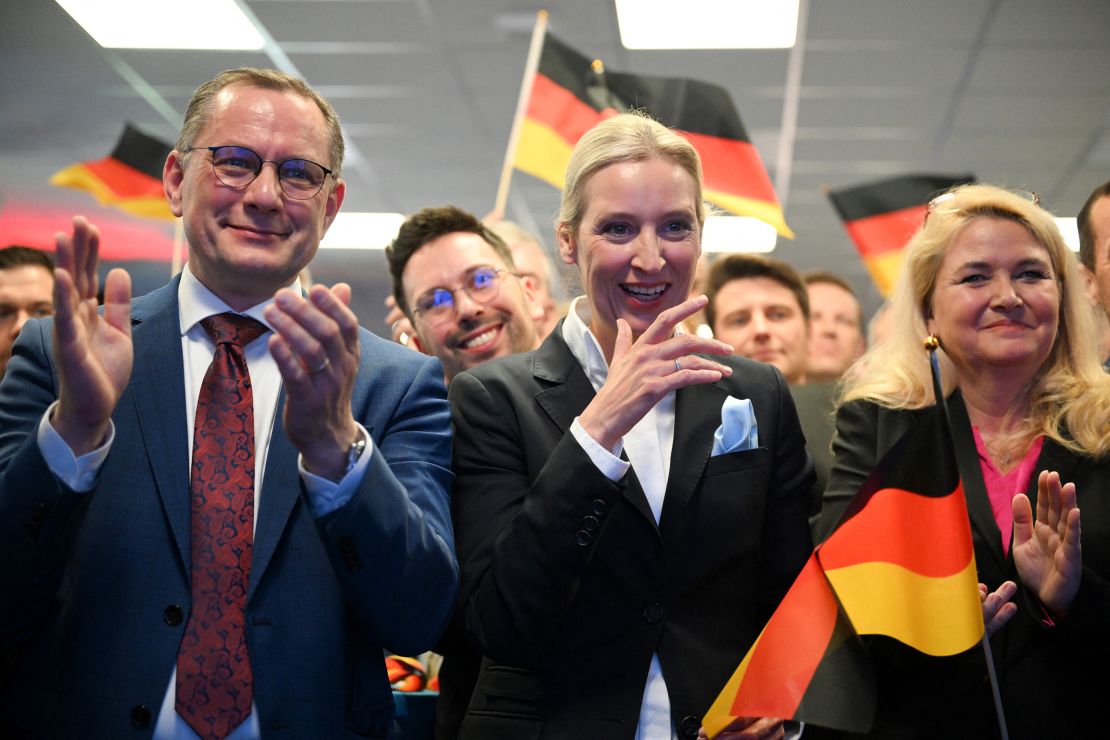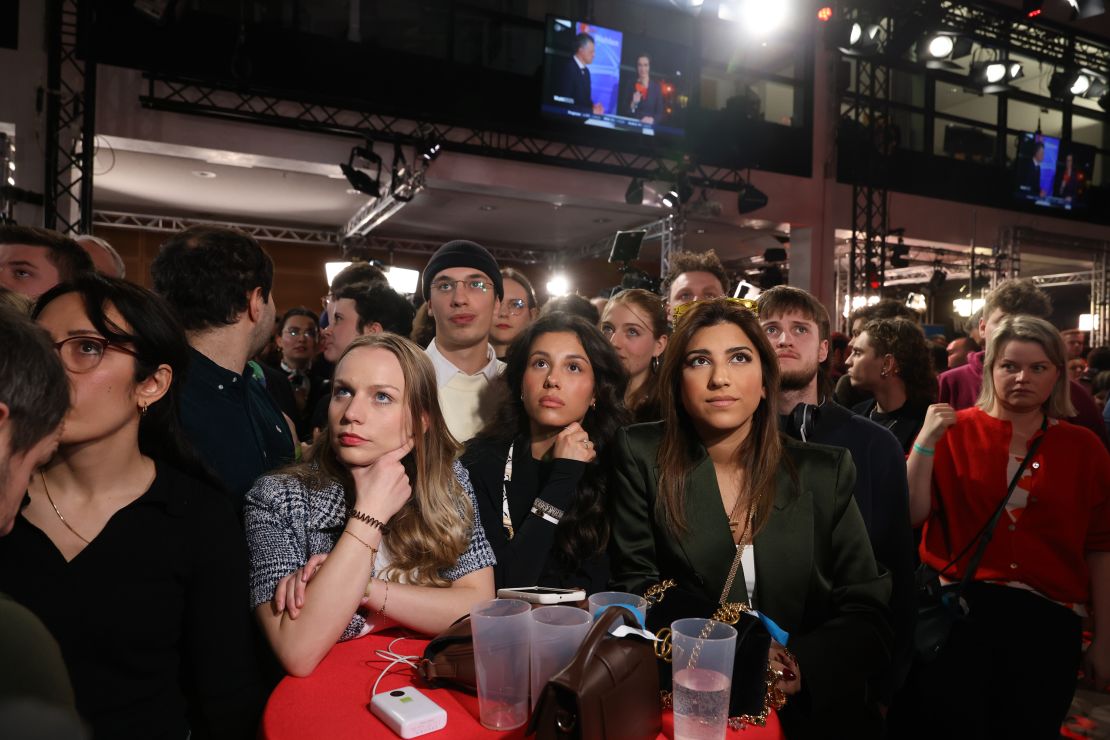
Berlin, Germany – February 24, 2025 – The political landscape of Germany has undergone a seismic shift following Sunday’s general election, which saw the opposition Christian Democratic Union (CDU) emerge victorious under the leadership of Friedrich Merz. The election results not only signify a dramatic political realignment but also raise pressing questions about Europe’s future direction, particularly in relation to its long-standing alliance with the United States.

Merz Ushers in a New Conservative Era
Friedrich Merz, a veteran conservative figure who has never held a government position before, is poised to become Germany’s next chancellor after his CDU, along with its Bavarian sister party, the Christian Social Union (CSU), secured 28.6% of the vote. Merz’s triumph signals a shift towards a more traditional conservative agenda, with strong rhetoric advocating for European self-sufficiency.
“Let’s get the party started,” the 69-year-old leader jubilantly declared at the CDU’s headquarters in Berlin, highlighting his eagerness to swiftly engage in coalition negotiations. With Germany being Europe’s largest economy, the significance of this transition extends beyond national borders, affecting the continent’s economic and political framework.

Far-Right Surge Shakes German Politics
In an election marked by rising discontent over immigration, economic instability, and foreign policy concerns, the far-right Alternative for Germany (AfD) secured an unprecedented 20.8% of the vote. Once considered a fringe party, AfD’s strong performance places it firmly as Germany’s second-largest political force. However, the traditional political “firewall” arrangement means that other major parties refuse to engage in coalition talks with AfD, effectively barring them from entering government.
Co-leaders Alice Weidel and Tino Chrupalla were seen celebrating the party’s historic gains on election night, underscoring the growing disillusionment among German voters with the status quo. Despite their exclusion from governance, AfD’s rising influence is likely to reshape national debates and policymaking in the years to come.

SPD Collapse and the End of the “Traffic Light” Coalition
For Chancellor Olaf Scholz’s Social Democratic Party (SPD), the election results marked a stunning decline. The party, which won 25.7% in the 2021 election, suffered a crushing defeat, managing only 16.4% of the vote. The collapse of the SPD-led “traffic light coalition” – which included the Greens and the Free Democratic Party (FDP) – underscores growing voter dissatisfaction with its handling of economic and immigration challenges.
The U.S.-Europe Rift Widens
A key theme in Merz’s post-election address was the need for Europe to assert its independence from the United States. In response to U.S. President Donald Trump’s recent actions—most notably, his exclusion of European leaders from peace talks on Ukraine—Merz emphasized that strengthening European unity and autonomy would be his top priority.
“My absolute priority will be to strengthen Europe as quickly as possible so that, step by step, we can really achieve independence from the USA,” Merz stated in a televised roundtable discussion.
His remarks come amidst growing concern that Washington’s foreign policy under Trump’s leadership is becoming increasingly indifferent to Europe’s security interests. Trump’s unilateral diplomatic efforts with Russia have particularly alarmed European policymakers, who see them as undermining the continent’s role in global negotiations.

Geopolitical Tensions and Foreign Interventions
Beyond the transatlantic relationship, Merz also alluded to external interference in Germany’s election. He cited recent interventions from U.S. figures, including business magnate Elon Musk, and drew parallels between influence from Washington and Moscow.
“The interventions from Washington were no less dramatic and drastic and ultimately outrageous than the interventions we have seen from Moscow,” he remarked, emphasizing the mounting pressures Germany faces from multiple global actors.
What Lies Ahead?
As coalition negotiations commence, Merz’s ability to form a stable government will be crucial in navigating Germany’s future. His agenda of strengthening Europe’s autonomy, managing economic uncertainty, and addressing immigration concerns will face significant hurdles, particularly given the fractured nature of the political landscape.
With Europe at a crossroads, the German election results signal not just a domestic power shift but a potential transformation of the European Union’s geopolitical stance. The road ahead remains uncertain, but one thing is clear—Germany’s next government will play a decisive role in shaping the continent’s future direction.





